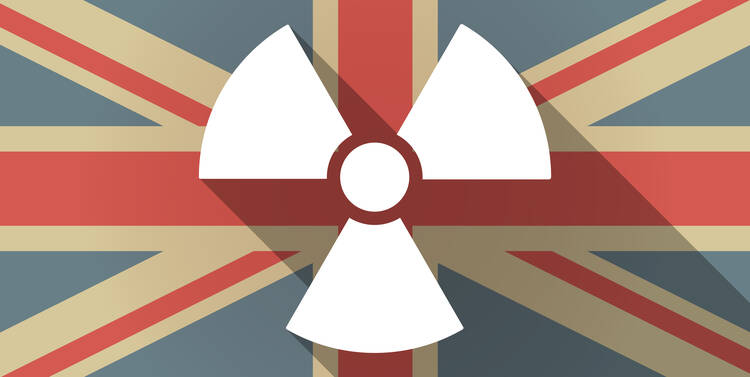For decades, Britain has possessed an independent nuclear deterrent capability. While public attention to that nuclear capacity has waxed and waned, it has always been controversial. The issue has arisen again here in Britain, launched, as it were, by several factors: the election of Jeremy Corbyn, a lifelong supporter of nuclear disarmament, as leader of the U.K. Labour Party; a looming need to upgrade and replace the current nuclear force, evoking concern about cost; and, finally, the Scottish independence referendum, which last year brought renewed focus on the Royal Navy’s submarines, packed with nuclear weapons, that are home-ported on Scotland’s west coast. Most recently, a controversial commentary during a television program by a high-ranking U.K. military officer brought the debate back to life, as has, indirectly, the terrorist attack in Paris.
The United Kingdom’s nuclear deterrent is its sea-borne Trident program: nuclear-powered Vanguard-class submarines based at the Clyde Naval Base very near Scotland’s most heavily populated metropolitan area, around the city of Glasgow. Each vessel is armed with 16 missiles, each of which has eight thermonuclear warheads. At least one is on patrol at any given moment. The system was purchased from the United States, while the warheads were developed and produced in Britain. Trident represents the United Kingdom’s only nuclear deterrent program, since the U.K. military decommissioned other delivery methods, like free-fall bombs, in 1998.
Were Jeremy Corbyn to be elected prime minister, within minutes of “kissing the hand” of the monarch at Buckingham palace, he would be given the codes that could launch these weapons of mass destruction—the ability to “push the nuclear button.” He has stated that he would refuse to do that. His reluctance raised, not for the first time, the question of the practical value of Britain’s nuclear weapons program. Can deterrence work only if the person whose finger is on the button is prepared to push it? Corbyn, and like-minded others, believe that since the end of the Cold War and the collapse of the Soviet Union, military postures based on “mutually assured destruction” no longer apply, that nuclear deterrence, if it ever really worked, has become irrelevant.
Into this debate stepped the chief of the U.K. Defence Staff, General Sir Nicholas Houghton. In a television interview he claimed that, presuming Corbyn ever became prime minister, his refusal to launch would “seriously undermine” Britain’s deterrent threat. Corbyn has demanded that the general be upbraided for this intervention into U.K. politics. Others argue that Britain’s nuclear force did not rate as an independent deterrent anyway, because any decision to launch would come ultimately from Washington, not Whitehall.
The cost of the proposed replacement keeps rising; the most recent estimate is £163 billion—about $244 billion. Prime Minister David Cameron is determined to proceed with the modernization. The opposition focuses on the enormous price tag during a time of austerity and great need elsewhere. To many the proposed expenditure appears obscene. A further dimension to the debate is just emerging: Is such a huge cost justified even by purely strategic measures?
Many point out that France’s nuclear capacity did not deter the awful attacks on Paris in late November. The practical threat has shifted, even changed altogether. Nuclear deterrence and intercontinental ballistic missile delivery systems are useless against the danger that a group like ISIS represents.
A second Scottish independence referendum looks likely as the Scottish National Party is set to sweep next May’s Edinburgh Parliament elections. The S.N.P. utterly opposes Trident and its renewal. An independent Scotland would insist on the removal of missiles from Scottish soil and waters. Scottish politicians have wondered aloud if a U.K. government would ever countenance basing such weapons as close to London as they currently are to Glasgow. That position is striking a chord among many Scottish voters.
Roman Catholic teaching has always argued against the use of nuclear arms, while Pope Francis has recently renewed the church’s call for their total abolition. In 1983 and again in 1993, the U.S. bishops boldly opposed nuclear weapons. The debate over nuclear weapons appears to be reviving, not only in Britain but around a changing and frightened globe. Are nuclear weapons a path to peace and security? Indeed, were they ever? Much might depend on our answer.








